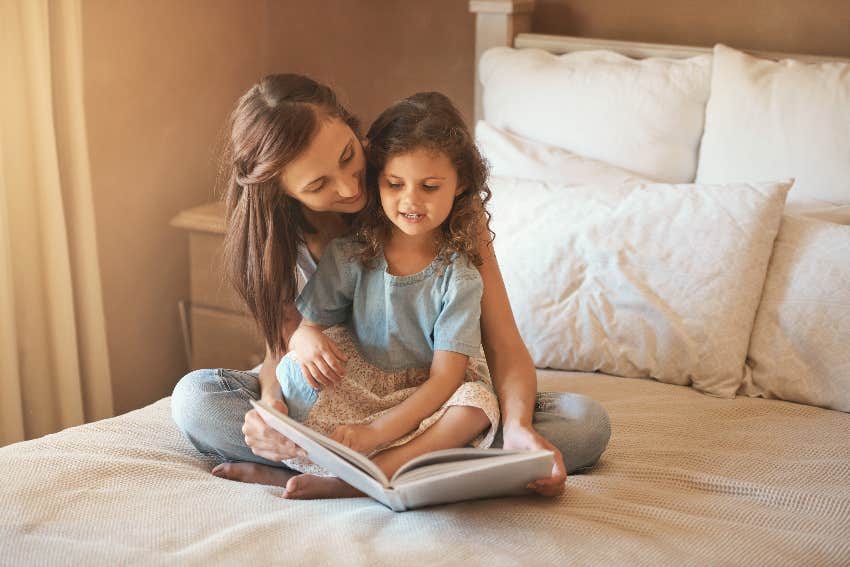If Your Parents Taught You These 7 Skills Growing Up, You're Probably Have No Anxiety As An Adult
How to ensure you raise less anxious kids.
 Janko Ferlic | Unsplash
Janko Ferlic | Unsplash The effects of stress and anxiety on children can present themselves in various ways. We’ve all been there. You are in line at the grocery store and your child sees something they must have ... as in, right now! Whatever it is, doesn’t matter. Your child is making a scene and you are feeling embarrassed.
Children have a range of feelings and that is alright. What’s important is that you help them understand their feelings and teach them the skills to deal with stress and anxiety, which will later help them as adults. When you don’t know how to manage anxiety and express your feelings, you tend to stay stuck and you don't want that for your child.
If your parents taught you these skills growing up, you probably have no anxiety as an adult:
1. How to make time to relax
Are you always on the go? If you answered "yes", then you are like most Americans. It’s important to slow down. This will not only help your child with learning how to deal with stress, but it will help you.
You don’t have to get everything done today. There is always tomorrow. Stop trying to be superwoman and slow down.
This is a great time to practice deep breathing with your child. Even if they fidget around, stick with it. Work up to 10 minutes a day when you're dealing with the effects of stress.
2. How to use positive affirmations
 Yuri A / Shutterstock
Yuri A / Shutterstock
This can help counteract stress and anxiety. Have your child write a positive affirmation on a note card. They can look at it during the day when they are feeling stressed.
It can be simple like, "I am relaxed" or "I am at peace." Make sure you practice this coping mechanism yourself. It will rub off on your child and set a good example.
Parents who use positive affirmations can experience reduced stress, increased self-efficacy, and a more positive outlook on parenting. This could lead to improved parent-child interactions and a more supportive home environment.
A 2020 study showed that self-affirmation exercises, including those focused on parenting pride, can motivate parents to seek additional parenting resources and support, especially those who fear judgment when asking for help.
3. How to stop overscheduling
I see this all the time in my practice. A parent will call and say that their child is showing signs of stress and dealing with anxiety. After I met with the child, I found out they were overbooked.
Your child doesn't have to play every sport or play multiple instruments. It’s alright if they don’t get straight A’s. Don’t get me wrong, I’m not saying that these things aren't important. Just don’t overdo it.
Some ways to reduce stress in your child include making sure that you've also scheduled time for fun and relaxation because they are just as important.
4. How to move their bodies
Just as you need exercise, so does your child. This can simply be walking. Children love to play. When you notice signs of anxiety in your child, exercise can be great for anxiety management.
Take them to the park if you don’t have a backyard they can run around in. Make sure they have a P.E. class at school. When they get home from school, they can go for a bike ride or a swim.
Don’t let them get in front of the screen when they first get home. After a while, exercise will become a habit. Stress reduction with exercise will also be fun. When parents actively encourage their children to be physically active, it positively impacts children's physical and mental well-being, fostering healthy habits and potentially improving self-esteem, mood, and cognitive function.
However, a 2017 study explained that the specific approach and age of the child are important considerations.
5. How to find humor in anything
 Prostock-studio / Shutterstock
Prostock-studio / Shutterstock
You must be having fun with your child. This can simply mean laughing together. You can watch a funny movie or cartoon together. Ask your child if they know any jokes.
You might be surprised by the answer. Life doesn’t have to be that difficult. Make sure you set aside time for fun.
6. How to use prayer and meditation
This is a great way to reduce stress. Your child can do this alone or you can do this together. Meditation is simply setting aside time to do nothing. If you’d like you can focus on a positive affirmation during this time. There are also many guided meditations for kids that you can use.
Prayer is also important. Make sure to state what you are thankful for and ask for what you need. This is also a great time to pray for others.
When parents actively encourage their children to meditate, it can positively impact their emotional regulation, stress management, focus, and overall well-being. Studies have shown potential benefits, such as reduced anxiety, improved academic performance, and stronger parent-child relationships.
However, a 2024 study concluded that it's essential to tailor meditation practices to the child's age and developmental level and to model mindful behavior as parents themselves.
7. How to eat well
Don’t let your child get loaded up on sugar and carbs because they can be one of the causes of stress and anxiety in children. They can have trouble focusing and later on, crash.
Make sure to pay close attention to what ingredients are in the foods you are giving them. A cereal bar may be easier in the morning, but how much sugar is in it? Substitute some almond butter with a banana.
Also, make sure your child is having enough water. You don’t want your child to get dehydrated. Give them a water bottle to take to school.
Unfortunately, we are hearing more and more about stress and anxiety in children. Recess and lunch have been cut back, which means there is less time for play and running around. It’s also getting more and more competitive and they are measured by a test score. This can lead to chronic stress after a while.
Make sure to compliment your child and recognize when they are doing their best. It’s easy to get caught up in the comparison game.
When you do this, your child will never measure up. If you want to know how to relieve stress for your kids, start by making them feel good about themselves.
Lianne Avila is a Licensed Marriage & Family Therapist. She is dedicated to helping couples and has completed Levels 1, 2, and 3 at The Gottman Institute.

